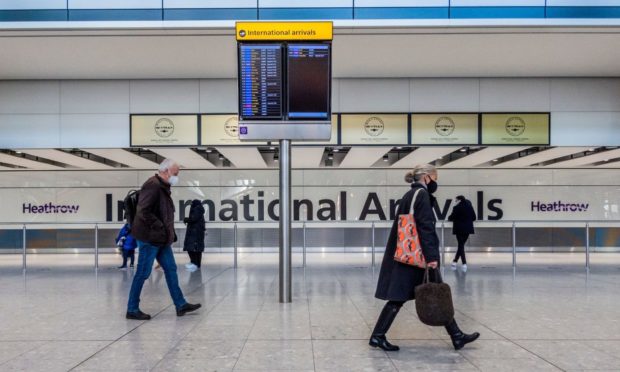A consistent travelling policy across the UK during the coronavirus pandemic would be far better than the current system, a north-east public health expert has said.
In an interview on BBC Good Morning Scotland today, NHS Grampian public health expert Jillian Evans explained the discrepancy in policy between England and Scotland as “frustrating”.
It comes as new border control regulations are coming into force in a bid to avoid importation of the virus.
As of today, travellers flying directly into Scotland will have to self-isolate for 10 days in one of the six designated quarantine hotels.
The new rules apply to all international flights, regardless of the country.
However, the regulations in England require hotel quarantine only for visitors from a “red list” of 33 countries identified as high risk.
This means those arriving from elsewhere could avoid it by entering Scotland via England.
Travellers would still have to self-isolate for the 10-day period, but would not have to do so at one of the designated hotels due to a lack of agreement between Scottish and Westminster governments.
Ms Evans said this could undermine the work that has already been done and increase the risk of transmitting the virus.
She said: “It’s frustrating to find a way to work around these regulations to protect Scottish borders.
“In my view, and in public health perspective, it would be far better to have a consistent policy across the countries in the UK to make it easier for people to comply and adhere to the rules.
“Although England is following the list of 33 countries, where the new variance is the dominant strain, we know that the new variant will exist in other countries too, so you can’t be sure that you are safe, just because you come from a country outside of that red list.
“Also, many people will have to board a bus or a train back to Scotland and that leaves themselves and others open to risk if they are carrying the virus.
“Staff are saying that they are on their knees and they are tired and that’s not just staff at hospital, that’s health and social care staff and public health staff too.
“So, I really think that we need to make some attempt to make life a little bit easier for people working on the front line and those supporting them.”
